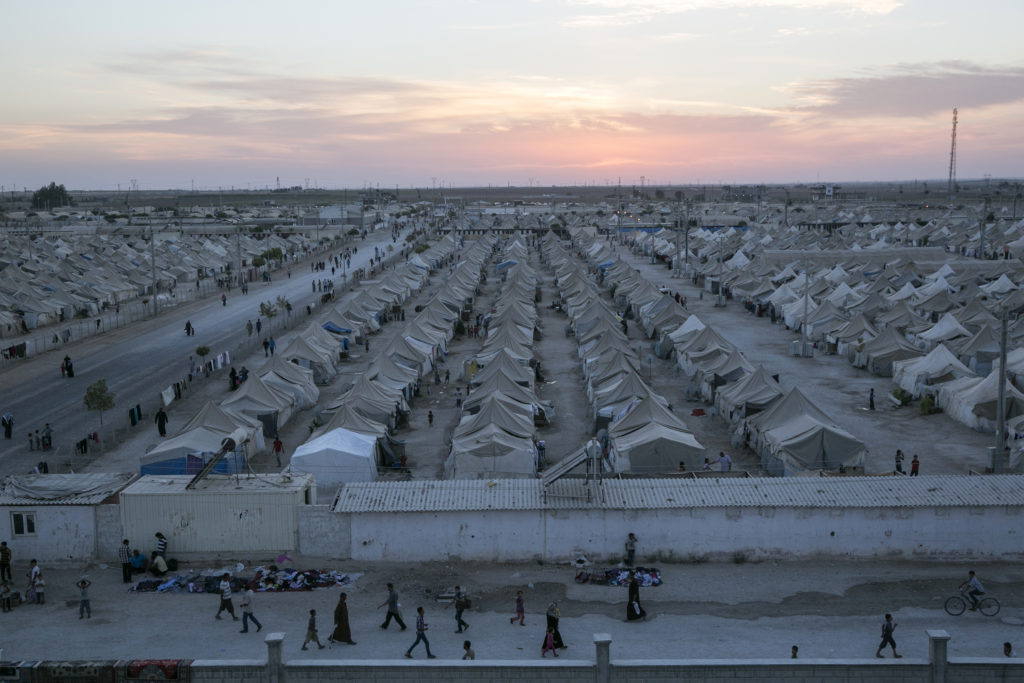The All Party Parliamentary Group (APPG) on Trafficked Britons in Syria has released a new report demonstrating how systemic failures by UK public bodies enabled ISIS trafficking of vulnerable British women and girls.
Today around 20 British families remain detained in North-East Syria. Research by the human rights organisation Reprieve suggests at least 63% of the British women now detained may have been trafficked into or within Syria. And at least 44% were coerced by a male partner or relative.
Of British detainees not born there, almost half were children at the time of travel to Syria and are therefore likely victims of trafficking.
During its inquiry, the APPG received evidence from a range of experts, including legal and anti-trafficking experts, current and former government officials from the UK and its allies, former police and prosecutors, as well as global security advisers, amongst whom was a former director of global counter terrorism at the UK’s Secret Intelligence Service (MI6).
The report reveals systemic failures by UK public bodies to prevent the trafficking of British nationals, with multiple missed opportunities to ensure vulnerable women and children were not trafficked by ISIS.
Key decision makers failed to recognise signs of grooming and that vulnerable young girls were at risk of being lured out of the country by traffickers.
The report identifies three key operational failings by UK public bodies:
Subscribe to our newsletter and stay updated on the latest news and updates from around the Muslim world!
- Failure to Identify At-Risk Individuals: Public authorities repeatedly failed to protect vulnerable women and girls from being groomed and coerced into travelling to Syria by male partners and relatives.
- Failure to Notify Parents and Guardians: Repeated failures by police and local authorities to engage the parents or guardians of at-risk young girls who were in the process of being groomed, missing multiple further opportunities to work with parents to intervene.
- Failure to Prevent Travel at Airports and Borders: Evidence strongly suggests that efforts at border posts to prevent vulnerable individuals from the leaving the UK fell short of the standards necessary to protect them from trafficking.
Despite the UK’s legal commitments and global reputation as a leader in the fight against human trafficking, the APPG report concludes the UK Government has failed to fulfil its obligations to identify, investigate, and protect potential victims of trafficking.

Rather than honour its international obligations to potential victims of trafficking, the report says the Government’s policy has been to punish them, including by refusing to repatriate them and stripping them of citizenship on what appears to be a blanket basis.
The APPG received evidence that abandoning individuals in unlawful detention, in circumstances where many have been victims of abuse and are currently subjected to inhuman and degrading conditions, is likely to lead to their trafficking or re-trafficking by ISIS or similar groups.
Steve Harvey, International Law Enforcement and Anti-trafficking Expert, told the inquiry: “It’s the state’s responsibility, starting from the top and trickling down, to identify victims of trafficking to make sure they’re not subjected to any human rights abuses. It’s ironic that I travel the world training overseas law enforcement officers and I used to talk about UK standards and UK best practices. I don’t mention it now because we don’t see many examples of best practice and I cannot say that there is blanket coverage across UK law enforcement on training basic awareness of what human trafficking looks like.”
Jayne Huckerby, Professor of Law, Duke University, told the inquiry: “We have a whole set of specific principles to deal with someone who has been trafficked and has engaged in forced criminality and that is the non-punishment principle. When we think about citizenship stripping when we think about non-repatriation… all of those violate the treatment that is designated for trafficked persons.”
Andrew Mitchell MP, APPG Co Chair, added: “The APPG’s inquiry has identified clear gaps in the UK Government response that allowed British citizens to be trafficked to Syria by ISIS. The state failed to protect these British women and children and is failing them still. We can and must do better, with an evidence-based approach that recognises them as victims of a criminal terrorist gang.”
Ministers have repeatedly stated that the UK cannot repatriate its nationals from northern Syria as it would be unsafe to do so.
A government spokesperson said: “Our priority is to ensure the safety and security of the UK. Those who remain in the conflict zone include some of the most dangerous individuals, choosing to stay to fight or otherwise support Daesh. Daesh still remains our most significant terrorist threat at home and abroad.
“The situation in North East Syria is clearly very complex with significant humanitarian and security concerns. We continue to work with international partners to support camps in Syria, funding the provision of life-saving supplies including food, water, healthcare and shelter.”






















